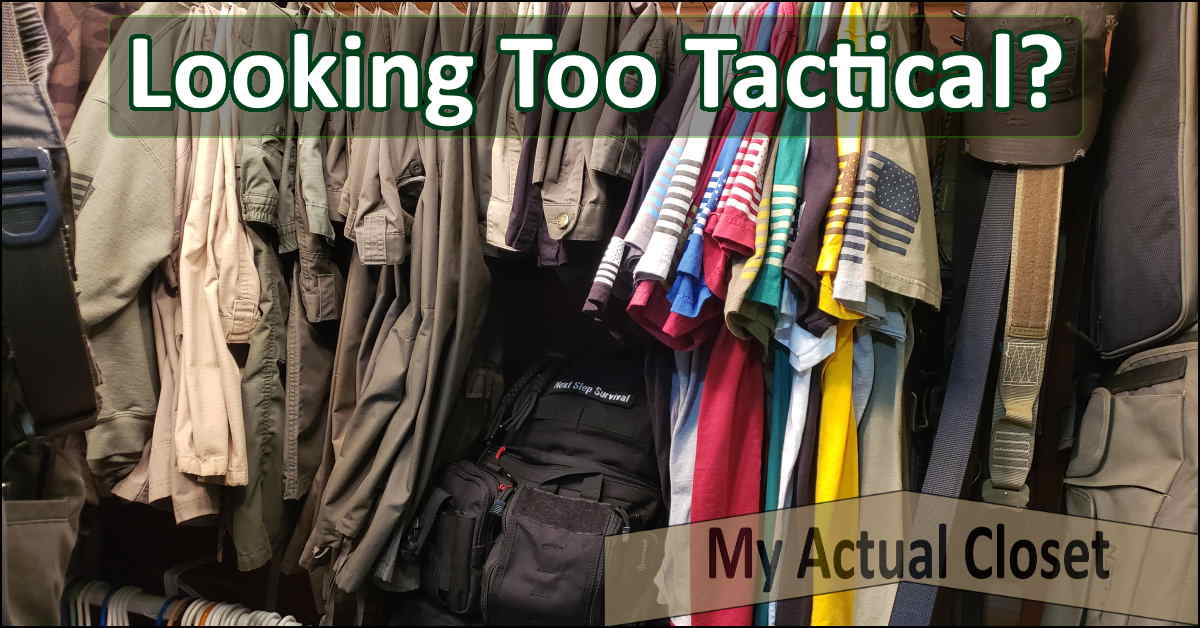Affiliate Disclosure:
As an Amazon Associate, I earn from qualifying purchases. My website is reader-supported, which means if you buy through some of our links (Aff/Paid), I may earn a small commission (With no cost or increase to you).
This post covers a few simple yet powerful online privacy tools that are essential steps to slowing the privacy abuse we’ve all experienced.
First, let my post disclaimer show that I am not an expert or professional at anything beyond being me. I believe sharing what I have done to help regain a little of my online privacy and sharing the online privacy tools I use may help you decide what steps are best for your situation.
Here at Next Step Survival, we take steps in the right direction, and these are the first steps toward a more secure online version of you.
The steps outlined and the online privacy tools I share are only the beginning. I won’t go into Virtual Private Networks (VPN), third-party-password applications, intrusive social media platforms, or anything else. I’m going over a few basic steps for your online privacy.
Hey, did you miss “Can We Have Privacy In 2021”? I don’t want to brag, but it’s one of my best articles.
Get Off Google Chrome
Google is NOT your friend. They’ve become one of the biggest and most powerful companies in the World from gathering up every little scrap of information they can about you, using high-tech to see deep into your soul, and then selling that information to their customers – or giving it away to “officials.”
One alternative is Tor, but I’m not qualified to speak to that right now. Another browser many have liked for their online privacy stance is Firefox, but until they “find themselves” again, I would avoid that browser as well. Firefox has been back and forth in the news on both sides of privacy. I’ll wait and see.
The Online Privacy Tools I Use
Enter Brave Browser
The first online privacy tool I use is the Brave Browser. Brave is getting popular, especially among the prepper community, because it’s an easy alternative to Google Chrome.
Brave browser is not perfect, and you can still leave a digital fingerprint, but it isn’t Google. It does, however, use the same open-source software that runs Chrome so, guess what?
It’s not Google, but You can transfer those saved shortcuts, passwords (not a great way to store passwords, BTW), extensions, and conveniences from Google Chrome to the Brave Browser. I made the switch in minutes, and I can hardly tell the difference.
Is Duck, Duck, Go An Online Privacy Tool To Consider?

Yes, yes, it is, in my opinion.
Think about how much personal information you could gain from someone by knowing just what they type into a search engine. What they clicked on and how long they stayed. And what they clicked while on those pages. If and how they shared the page. On and on, the data spills into the jaws of predatory ad companies.
Forget about digging in someone’s trash; any private investigator would salivate at that kind of information. One might say, “You could rule the world with that much information“. Understand?
Well, is that the kind of information we want to freely offer Google when their business is built on exploiting that information and selling access to us based on what’s stolen?
No, use DuckDuckGo. It’s the easiest online privacy tool you can use. They even have their own browser and mobile app.
Here’s another search option, Startpage.com, that uses Google search but without tracking, cookies, and data harvesting. There are many others.
Is Your Email Secure?
Are you using an encrypted email service like ProtonMail? If so, you’re good, right? Wrong. Email isn’t safe. Period.
Here’s what little I know.
- Google cannot be trusted.
- No one is trying to read MY emails.
- No third-party Email is 100% secure.
- Google cannot be trusted.
Here’s what I do.
I’ve been using Gmail since the late 1800s or whenever they started. I can’t remember. I have many Gmail accounts. One for each domain that made it to sitehood. I’ve had many.
Why not use the email client that comes with WordPress? Because it sucks, and I hate it. Or all three of them, the last I checked. SquirrelMail and whatever the others were/are. They suck. Did I mention I hate them?
So for years, I’ve been using Gmail. Call me crazy, but I don’t want to connect third-party email services or plugins to my all-important website to have even more databases to worry about corruption, backing up, etc.
Sorry, this isn’t blogging 101. I’ll get back on track.
So I…
Keep my Gmail accounts. What? Yes, I still use Gmail. But I also use ProtonMail. I am now, anyway.
First, why keep Gmail? I’m cemented in it with more accounts than I can remember, but that hasn’t stopped me before.
Here’s the thing – I try to be honest with myself. I know I will sneak a sweet treat now and then, and I know I will use Google search again. I know I’ll probably find a reason to visit any number of social media sites I’m avoiding, as well as a dozen other websites that will sell my digital soul to the average bidder. They don’t even demand high payment.
So why not use Google and Gmail for those times I know I’m leaving a browser fingerprint? (Watch Your Internet Browser Fingerprint) Why allow those sites to quickly discover my digital footprint on Brave and apply my identity to future activity? I know it sounds like spy stuff – because it is.
Look At ProtonMail

I like Protonmail, and I really like it because I can use my own domain email accounts. And it’s not Google.
From what I understand, Protonmail is only encrypted when emailing to and from another Protonmail account. Otherwise, it’s like walking into work wearing a camouflage shirt. You’re not hidden, and everyone already knows who you are. Now they know you like camo.
Without going into unsubstantiated claims, some rumors are floating around about Protonmail as well. Remember, no email is safe. I won’t participate in rumors without reasonable substantiation.
Conclusion
In today’s world, privacy is a worthy goal but is impossible short of living off-grid on land you don’t own.
We can look at online privacy in layers and decide how hard we will work to protect it.
We should look honestly at the damage done to ourselves, our families, and our society by social media, big tech, large businesses, and even the state.
Simply put, you’re privacy has been taken. We cannot undo most of that. You can take steps to mitigate and reduce future privacy abuse, but you’ll miss a bunch of it because the privacy bulldozer is already in motion, and we don’t always see where it’s heading.
My Advice:
Don’t follow the crazies into the darkness.
Don’t follow the sheep into the slaughterhouse.Almost famous quote by Brian D. Hawkins
- Don’t drive yourself crazy.
- Don’t start getting all paranoid and making drastic changes without taking the time to think things through.
- Take stock of your personal situation, weigh the risks and effort, then take the steps that make sense for you.
- Don’t follow the crazies into the darkness.
- Don’t follow the sheep into the slaughterhouse.
The Three Online Privacy Tools To Start With
- Start using Brave Browser. Keep your current browser when you know you’ll leave a digital fingerprint tracked by websites.
- Switch to and use DuckDuckGo. Make it your default search engine on Brave as well.
- Set up a ProtonMail account. Stop using email for anything “sensitive,” and always assume that others can see what you’re sending and receiving. Then set up a ProtonMail account. ProtonMail is free unless you want more space or you want to use your own domain. I wanted to use my own domain, and ProtonMail is the best solution for me to do that.
Next Privacy Steps To Take
Decide what other platforms and online tools you have to keep and which ones need to be cut loose or replaced. Some will overlap, like Google, for example.
Facebook is evil and, in my opinion, should be abandoned. Have an online following for your business that you don’t want to walk away from? I totally understand and won’t judge you.
Just consider an alternative for later in case they decide to force you out. Start building that safety net now—preferably one you control.
Nothing’s 100%. Understand there will be times you’ll have to give up some privacy. Your bank, for example, is going to have some of your most sensitive data. That doesn’t mean you should cash in your retirement accounts, close your bank accounts and start cashing your checks at the party store.
It would be best if you didn’t drive along aimlessly into the abyss because you’re afraid to use GPS. After all, the NSA will discover which restaurant you went to.
You could, however, turn off location tracking the rest of the time. Ditch the apps that request that information but don’t need it to function. Simple common sense will go a long way in securing a tiny piece of your privacy – but only a piece.
Don’t confuse due diligence with paranoid panic and irrational action.
Another almost famous quote by Brian D. Hawkins
Fun Fact: As far as I know, I’m the only blogger that’s been quoting himself on his own blogs for the last seventeen years. It feels good to be me. LOL
Speaking of due diligence, have you considered giving up your smartphone? Yes, you heard me right.
It seems silly to worry about the browser or online privacy tools that we use while we covet the biggest privacy thief there is today—a tracking beacon and monitor used by thousands that we proudly chain to our hips.
Hey, I’m not judging. How can I? I own a Samsung Galaxy S21 Ultra that was just released last week! See, I know, stupid when I see it because we’re related. Okay, I’ll resist making another selfie quote again. 😉
This is something I’m looking deeper into, and I’ll report back to you as soon as I have something more concrete. A couple of years ago, it would have been an easy solution, ditch the smartphone for a dumbphone.
The potential problem is that, as the networks move into 5G, will older 2G and 3G continue to be supported? If not, many of those older non-smartphones may become useless.
As I said, it’s something I’m looking into. We are two people with four lines, and that’s why. Two lines are dumbphones. I said we’re related, not clones.
Stay safe. Stay prepared.
Hawkins Out.
Also See: Can We Have Privacy In 2021? You’re Joking, Right?
This article was originally published on
NextStepSurvival.com on January 31, 2021
Copyright © 2021. All Rights Reserved






Leave a Reply